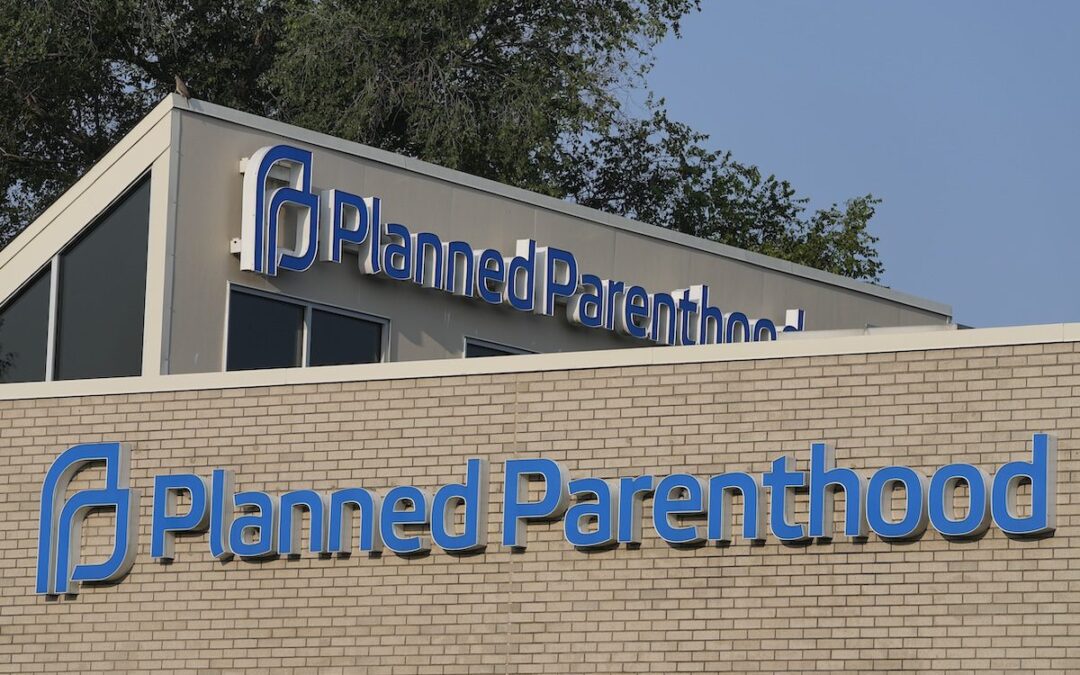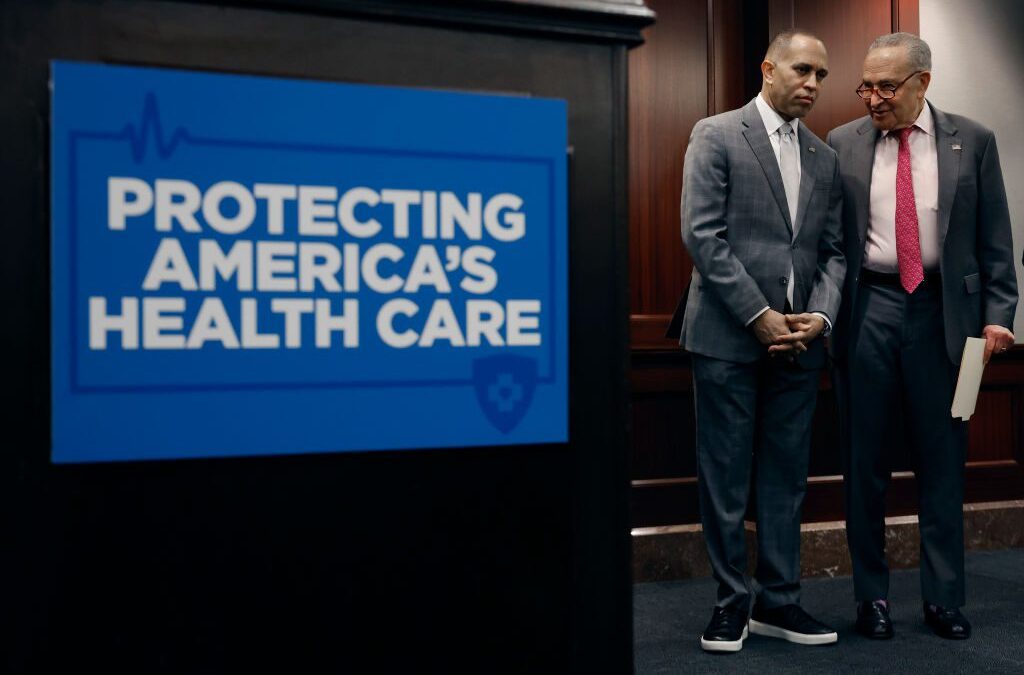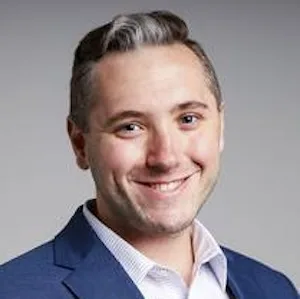
Credit: Getty Images
VA branches that cover Nevada, which is home to more than 200,000 veterans, employ a combined roughly 4,800 full-time employees and complete more than one million healthcare visits each year — leaving some worried that any cuts to the agency will impact their wellbeing.
Amid recently announced plans to eliminate roughly 82,000 jobs at the US Department of Veterans Affairs (VA), Nevada lawmakers and disabled former servicemembers worry the forecasted cuts could greatly impact access to medical benefits and other key services offered by the agency.
Several media outlets last week reported of an internal memo, since publicly confirmed by VA Secretary Doug Collins, to return the agency to 2019 staffing levels of about 400,000 — down from the roughly 482,000 at the agency when President Donald Trump took office in January.
That would eliminate virtually all of the positions created under former President Joe Biden’s administration, which increased staffing after passage of the 2022 PACT Act, which expanded the number of health conditions covered for combat veterans who were exposed to toxic chemicals while in the line of duty.
Collins told the Military Times shortly after the March 5 memo was publicized that the impending cuts would not impact health benefits or other services, and a senior VA official told a panel of federal lawmakers this week that the agency is still in the early stages of undergoing an analysis to determine which positions would be eliminated. Since news of the cuts surfaced, Collins has also said that about 300,000 VA positions have been deemed “mission critical,” meaning that the cuts would get rid of about 40% of the department’s “noncritical” workforce.
Despite those assurances, not everyone is convinced.
“The very first thing that went through my head was that services are going to get cut,” Jose Cruz, a disabled and retired Air Force Chief Master Sergeant, told The Nevadan during a recent phone interview. “As far as being a veteran who gets care from the VA, it’s a huge slap in the face.”
Cruz, who retired in 2018, said the VA had become his primary source for medical care, and feels that the agency has done an adequate job in recent years processing claims so that veterans aren’t subject to long wait lists just to receive basic care.
RELATED: Rosen-backed bill to connect veterans with benefits signed into law
VA branches that cover Nevada, which is home to more than 200,000 veterans, employ a combined roughly 4,800 full-time employees, and complete more than one million visits each year. Neither the VA of Southern Nevada, nor the VA of Sierra Nevada — which services areas upstate and in California — responded to requests for comment.
But even beyond health benefits, the VA also oversees some medical research, and also manages benefits programs that administer pensions, loan and insurance programs, job training opportunities and funding for college degrees, among others, according to the New York Times.
Each of the five Democrats in Nevada’s federal Congressional delegation are opposed to the proposed cuts, and a federal judge on Thursday ordered the Trump administration to reinstate roughly 2,500 probationary VA positions that had already been culled under the president’s efforts to downsize the civil service.
Nevada Democratic US Rep. Steven Horsford told The Nevadan in a statement there are more than 70,000 veterans in his district, many of whom depend on the VA for services. He said the proposed cuts would only make accessing those benefits more difficult.
“While there are certainly ways to make the VA more efficient, these cuts — driven by laziness and indifference — compromise the quality of care that veterans have earned, deserve, and sacrificed for,” Horsford said, adding that existing cuts have already impacted a crisis hotline managed by the VA. “These cuts will lead to longer wait times, reduced care, and fewer resources for veterans in need.”
Meanwhile, Rep. Mark Amodei — whose district covers Northern Nevada and is the only Republican to represent the state in Congress — told The Nevadan his office is working with the VA and other agencies impacted by the Trump administration’s ongoing cuts to evaluate how they affect residents in Nevada.
“To date, we have identified no impacts on the VA facilities in Northern Nevada,” Amodei said in a statement. “We will continue to aggressively monitor any potential cuts to the VA in Nevada and take appropriate actions while consulting with officials in Nevada, Washington DC, and local veterans groups.”
The rumored cuts to the VA also come as state lawmakers this week began considering a bipartisan bill that would prohibit individuals or groups not currently accredited by the VA to prepare disability or benefits claims on behalf of claimants. The bill, AB145, was introduced by Assemblymembers Reuben D’Silva (D-North Las Vegas) and Ken Gray (R-Dayton), and has been supported by veterans groups like Veterans of Foreign Wars (VFW), the American Legion, and others.
Supporters say the measure would act as an important guardrail to protect vulnerable veterans from fraud and bad actors who charge for services that should be provided for free by groups already approved by the VA.
“If you’re a teacher in the state … If you’re a barber in the state, you’ve got to be accredited,” said Fred Wagar, Southern Nevada state legislative chair for VFW Post 3848. “[So] if you’re going to help veterans and you’re going to represent them to the VA, you should be accredited.”
But opponents argue the bill would eliminate consumer choice and cajole veterans into working with so-called Veteran Service Organizations who aren’t as efficient as for-profit entities. It’s not yet clear whether AB145 has enough support to pass both the Assembly and state Senate.
Ross Bryant, a disabled veteran who testified in opposition of AB145 on Monday, said it took him 17 years since his 2005 discharge from the US Army to access medical benefits owed to him. Though he said the bill was well-intentioned, enforcement of the proposal could create more problems than solutions due to cuts looming at the VA.
“I’m not being political, but if we’re going to start cutting 80,000 employees, things are not going to get better,” Bryant said. “They’re going to get more challenging, and that means every vet needs more choice.”

States can cut off Medicaid funding to Planned Parenthood, the Supreme Court rules
The ruling authored by Justice Neil Gorsuch and joined by the rest of the court's conservatives could have broader implications for Medicaid...

Regreso a clases: Dónde vacunar a tus hijos en el Sur de Nevada
A medida que se acerca el año escolar 2025-2026, el Distrito de Salud del Sur de Nevada (SNHD) recomienda que padres y tutores lleven a vacunar a...

Back to school: Southern Nevada Health District encourages early school immunizations
As the 2025-2026 school year approaches, the Southern Nevada Health District is urging parents and guardians to vaccinate their students early to...

Recortes en servicios de idiomas en hospitales podrían resultar en errores
Recortes en servicios de idiomas generan temor a errores médicos, diagnósticos equivocados y muertes Si sólo tienes unos segundos, lee estas líneas:...

A Las Vegas Democrat introduced a bill that would expand Medicaid coverage for vasectomies
The roughly 800,000 Nevadans who get their health insurance through Medicaid could soon see expanded coverage for contraceptive care, if one bill...

It’s up to us to stop GOP attacks on healthcare access and affordability
As Chair of the Senate Health and Human Services Committee, I think about healthcare access every single day—because for many Nevadans, it’s not a...





